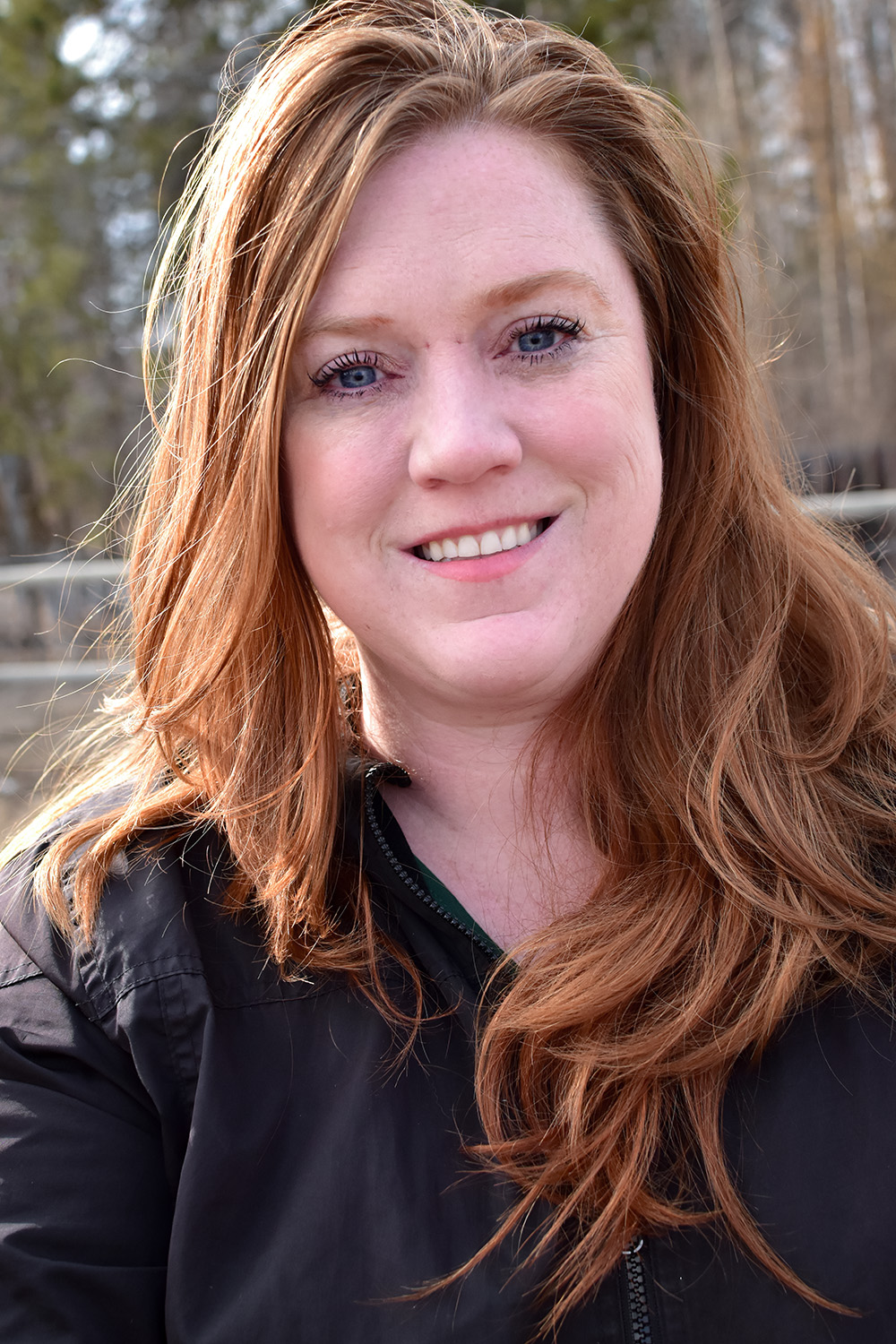Convocation ‘22: Lee Campbell, PhD, Biological Sciences (Immunology)
Donna McKinnon - 22 November 2022
 Throughout her academic journey, but particularly in the era of COVID, Lee Campbell has learned when to take a step back, and when to pivot.
Throughout her academic journey, but particularly in the era of COVID, Lee Campbell has learned when to take a step back, and when to pivot.
Adaptability in the life of a scientist is a necessity, but for Lee, an unwavering dedication to the study of viruses remains steadfast.
Fascinated by zoonotic and comparative immunology, she has produced groundbreaking research, and has, in the words of her supervisor, Dr. Katharine Magor, “single-handedly characterized the avian TRIM gene family in response to influenza.”
Stepping out of your comfort zone is essential, says Lee, who for years worked as a horse trainer and riding instructor before she began her program at the U of A. Still fascinated by animals, and their immunological relationship to humans, next up for Lee is an international postdoctoral position to continue her research with virus and reservoir host interactions.
Congratulations Lee!
What led you to choose your current area of study, and why the U of A for your studies?
I have always been fascinated by viruses. I completed my undergraduate degree at the U of A in immunology and infection. Throughout my undergraduate studies I became intrigued with reservoir species that host zoonotic viruses, that is, animals that carry viruses that can infect humans, but these animals are generally unharmed by these viruses.
Specifically, I am interested in comparative immunology; how the immune system of one animal compares to humans, and how these similarities and differences in immune systems may make these animals more resistant to viruses that can harm or even kill humans.
I stayed at the U of A to complete my PhD because of my supervisor, Dr. Katharine Magor. Not only is Dr. Magor an incredibly talented comparative immunologist/virologist, but she also gave me the support and freedom to mold my PhD project to my interests.
What is one of your favourite memories from your time at the U of A?
I have many, and it's incredibly hard to pick a favourite! However, I was lucky enough to TA one of the modules for the South African Field School when the program was still offered, which was located in Hout Bay, South Africa. It was an amazing experience, the people, the food, the location, all of it.
Did you take on any leadership roles while you were a student?
I supervised BIOL 399 and BIOL 499 courses during my PhD, and some of those students I am still in regular contact with. It is super rewarding to watch a new science student go from not knowing how to use a pipette, to designing and planning their own projects.
Did you face any significant obstacles or challenges during your program, and if so, how did you respond?
I think every graduate student does. In science, it seems the most common significant obstacle in grad school is when your experiments just inexplicably don't work, or stop working. My response, depending on the severity of the obstacle, was to either take a step back or pivot. Sometimes, taking a few days to just read and think could help me work through problems. Problems with less obvious solutions (ie. how to get lab work done during the COVID-19 lockdown) caused me to pivot. I learned new skills, and took on a new project that I was able to complete in isolation outside of the lab.
What advice do you have for current and future students?
Try to step outside of your comfort zone as often as possible. And to take care of yourself. Your mental health matters, don't be afraid to talk to someone whenever you feel like you might need a little additional support.
How do you plan on celebrating convocation?
I think I'll go out to the countryside and have a nice bonfire and a beer with friends.
What's next after graduation?
I'm currently working on getting a postdoc position internationally so I can continue researching virus and reservoir host interactions.